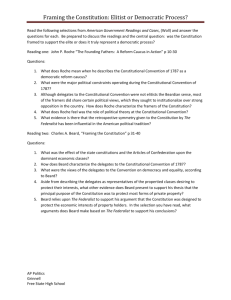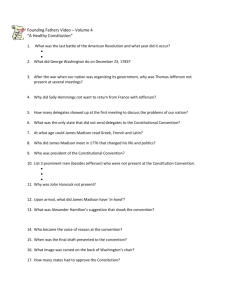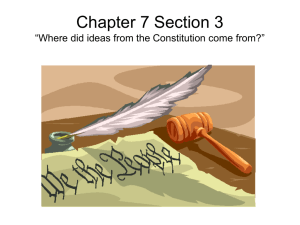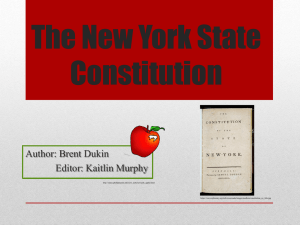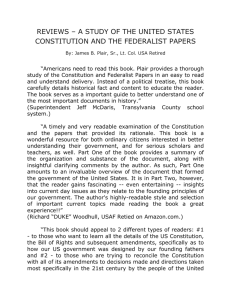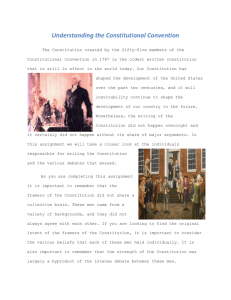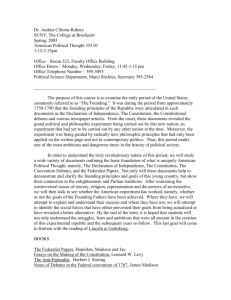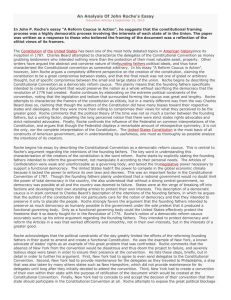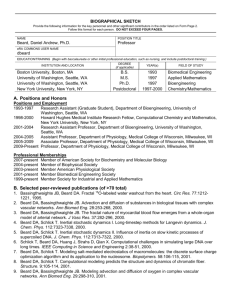Woll reading guide constitution articles
advertisement
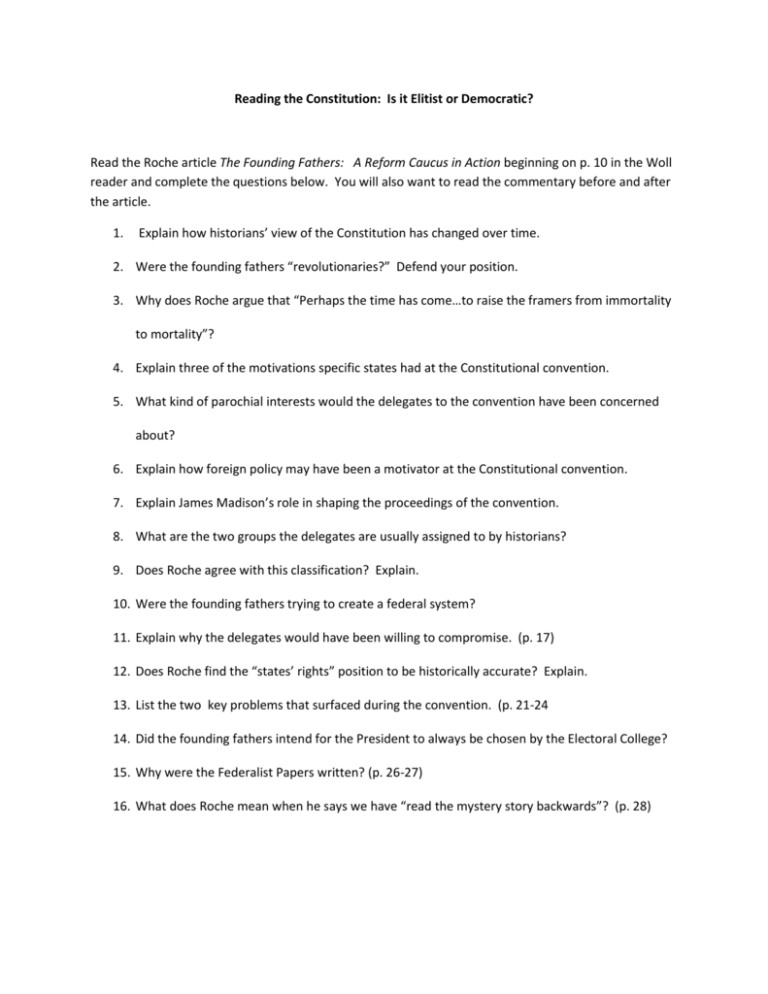
Reading the Constitution: Is it Elitist or Democratic? Read the Roche article The Founding Fathers: A Reform Caucus in Action beginning on p. 10 in the Woll reader and complete the questions below. You will also want to read the commentary before and after the article. 1. Explain how historians’ view of the Constitution has changed over time. 2. Were the founding fathers “revolutionaries?” Defend your position. 3. Why does Roche argue that “Perhaps the time has come…to raise the framers from immortality to mortality”? 4. Explain three of the motivations specific states had at the Constitutional convention. 5. What kind of parochial interests would the delegates to the convention have been concerned about? 6. Explain how foreign policy may have been a motivator at the Constitutional convention. 7. Explain James Madison’s role in shaping the proceedings of the convention. 8. What are the two groups the delegates are usually assigned to by historians? 9. Does Roche agree with this classification? Explain. 10. Were the founding fathers trying to create a federal system? 11. Explain why the delegates would have been willing to compromise. (p. 17) 12. Does Roche find the “states’ rights” position to be historically accurate? Explain. 13. List the two key problems that surfaced during the convention. (p. 21-24 14. Did the founding fathers intend for the President to always be chosen by the Electoral College? 15. Why were the Federalist Papers written? (p. 26-27) 16. What does Roche mean when he says we have “read the mystery story backwards”? (p. 28) Framing the Constitution by Charles A. Beard 1. List the two “great parties” Beard identifies in the leadup to the Constitutional convention. 2. Explain the general characteristics of both groups. 3. Why do you think Jefferson wrote that “he preferred newspapers without government to government without newspapers”? 4. Explain how those with property interests rose to political power and influence, as Beard describes it. 5. Explain the economic problems the country faced following the Revolutionary War. 6. Some attempts were made to revise the Articles of Confederation. Describe two of these and tell why they failed. 7. How were delegates to the Constitutional Convention selected? 8. Who does Beard describe as being the conservatives and the radicals? (give names and general characteristics) 9. On p. 36, Beard writes that “the members of the convention assembly were not seeking to realize any fine notions about democracy and equality,” but instead were doing something else. What else? Explain! 10. Is it undemocratic to have property qualifications on voters? What does Beard say was the Founders’ perspective on this issue? What’s your opinion? 11. Beard indicates that the setup of Congress was designed to protect the rich from the poor. Explain what he’s saying about this on p. 38. 12. Beard goes on to discuss that the ratification process itself was also based on elitism. Explain his argument found on p. 39. 13. Why does Beard say the Federalist Papers were written? Federalist No. 51 1. This is one of the most famous of the Federalist Papers because it explains the purpose behind separation of powers. Explain why the Constitution sets up the government this way. 2. What does it mean that “Ambition must be made to counteract ambition”? 3. Which branch of government did the Founding Fathers think would be the dominant branch? How Not to Read the Constitution (p. 47) 1. The authors contend that the Constitution “is only a framework, not a blueprint.” What does this mean? What does it imply for what the Constitution means today? 2. Describe the “liberal” vs. “conservative” schools of thought on how to “correctly” interpret the Constitution. 3. What is the “basic problem” with interpreting the Constitution, according to the authors? (p. 49) 4. The authors end by quoting Whitman: “ Do I contradict myself? Very well then, I contradict myself. I am large, I contain multitudes.” Why do you think they chose this quote to illustrate their point?
